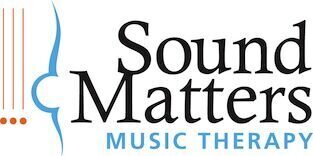A few Saturdays ago, the Music Therapy Association of Minnesota held its two-part Fall Conference online. The presentations were “Whiteness As a Source of Harm in Music Therapy Practice, Education, and Leadership,” by Daniel Goldschmidt, MT-BC and “(Re)Centering Culture in Music Therapy,” by Natasha Thomas, PhD, MT-BC and Chantise Hunt, MA, MT-BC.
Clearly these are big topics and they were both outstanding presentations. I have had a lot to think about, obviously, as a white middle class woman.
But what has never occurred to me is the privilege I enjoyed growing up as a musician.
I started violin lessons at the age of two. Do you know how unusual that is? My mother was able and willing to dedicate a portion of her day — each day — to help a toddler learn to play an instrument. My parents paid a teacher every month. My mother drove me to the lessons — two per week — and the rehearsals and the recitals.
I went to a tiny public school in rural Iowa where I was provided opportunities that my parents always supported. (Not to mention all the sports that I played and the expenses those incurred.)
In middle school I started voice lessons. I believe it was somewhere in those years I started taking private voice lessons on top of the Suzuki lessons I continued. So my mother drove me to my lessons several times a week in those years, until I was able to drive myself.
Now that I am a parent, I am starting to realize the expense these opportunities must have cost my parents. Not only is it the money, it’s the time. I’m not sure which is more expensive, really.
And then I went to college and studied music. After that, I essentially fell into studying music therapy. Do you know what you need to have in order to even get into music school? You have to have ability to perform your instrument (among other things, of course). In other words, you have to have had a privileged existence just to apply to school. You have to have had more than school alone. You have to have had support, opportunities, money. You have to have had freedom to practice and explore and learn about music in an extracurricular environment. Certainly, I was offered music instruction in school, but my school didn’t have an orchestra. Probably I would have still gotten into singing — and maybe the instruction I received in school alone would have sufficed — but maybe not.
This is all to say that the privilege to be a musician and a music therapist goes further than having the ability to play and create and make art. There is so much more to explore and pull apart when it comes to privilege in the field.
